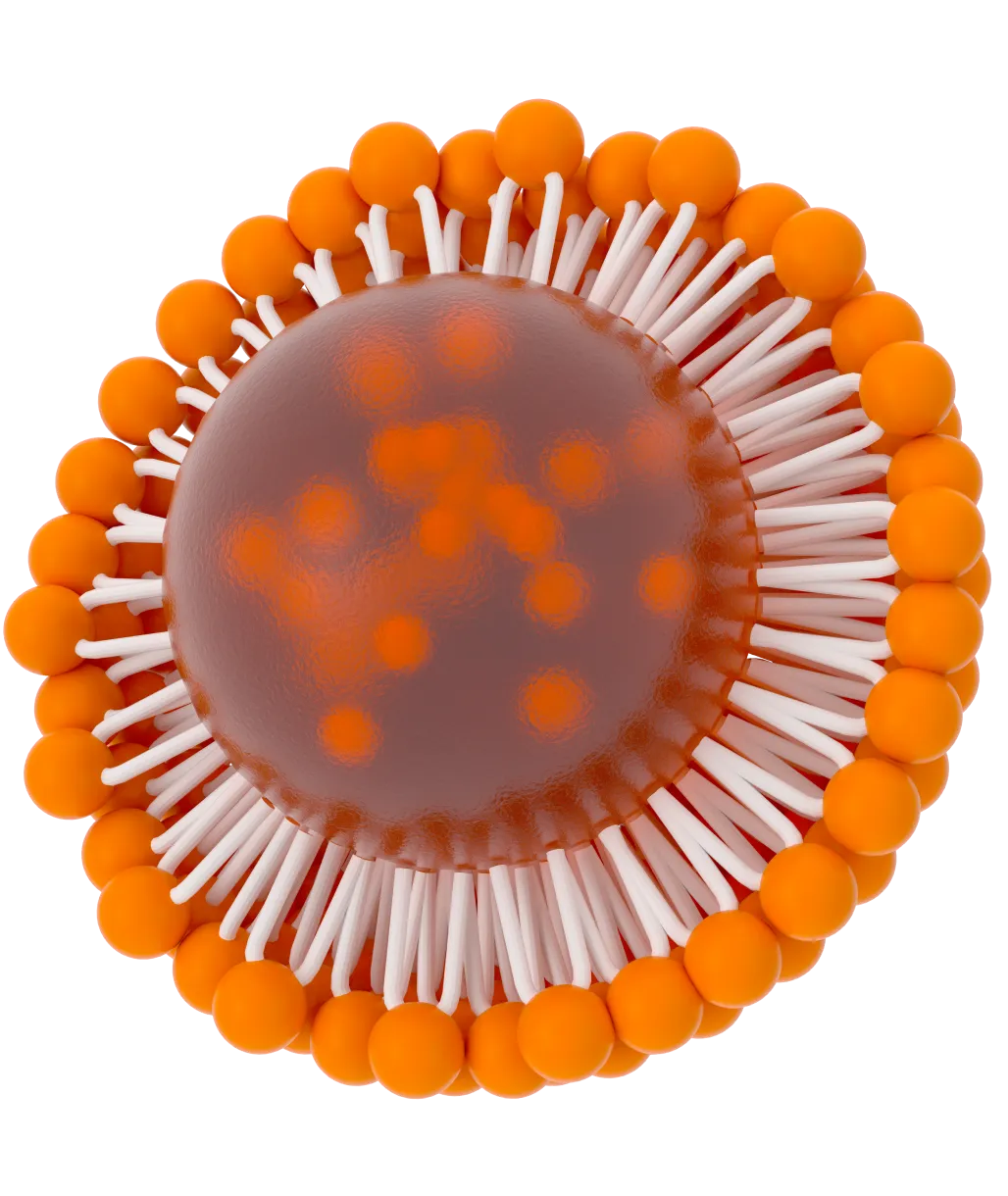How does FIDA accelerate LNP development?
01
Study LNP binding interactions in complex matrices
- As an in-solution, non-immobilization technology FIDA enables characterization of interactions on surface of large particles.
- Study LNPs directly in serum, thus obtain clinically relevant data.
- No buffer constraints – FIDA users have wide research design flexibility.
02
Detect even weak binders
- Study interactions on large particles
- Measure interactions over pM to mM – with a single technology
03
Screen LNPs for specific tissue targets
- FIDA can be used as a pre-screening, in vitro technology to decrease the need for costly and lengthy animal studies.
- In-vitro, in-solution, serum-based screens for studying interactions with organ-specific proteins can yield data for reducing the size of animal-studies.
04
Characterisation of tissue specific proteins
- FIDA can be used for in-depth characterization of proteins identified in proteomic screens.
- Precise and absolute size measurement ensures high confidence in results accuracy.
05
Quantitative comparisons of LNPs
- Comparative (quantitative) screening of LNPs - possible thanks to FIDA’s precision - it can detect size changes down to an angstrom.
- Outperforms other technologies in terms of sizing accuracy and interaction measurement sensitivity
06
Technological flexibility of an open architecture platform
- Multiple detectors allow for label or label-free assays
- Temperature control for analysis and sample storage
- Minimal buffer constraints
- Embedded viscosity measurement
- Robust, user-friendly design
07
Versatile for usage in LNP research, development and manufacturing
- Open-platform and straightforward system facilitates processes
- Absolute measurements ensure replicability
Benefits

Delivers clinically relevant findings thanks to in-solution serum or plasma based studies.

Delivers precise size measurements (down to 5% in size change)

Provides versatility thanks to an open-platform format with multiple detectors

Allows to study even weak target-specific bindings

Lower costs thanks to the ability to pre-screen samples

In-depth characterisation opportunities thanks to absolute measurements
Features

No buffer constraints

In-solution, non-immobilization

Temperature-controlled

Autosampler

Multiple Detectors: UV (label free), 480, 535, 640

User-friendly software
Measures

Accurate determination of dilute phase concentration

Relative droplet size distributions

Kinetics of droplet formation and maturation into amyloid fibrils

Determination of binding affinity between the polypeptide undergoing LLPS and LLPS-modulating compounds
One technology throughout the workflow:
01
.webp)
Development:
02
.webp)
Optimization
03
.webp)
Scaling for production
Targeting common challenges in research on lipid nanoparticles

Challenge


Size and Stability Control
FlDA allows its users to determine the absolute size (Rh) of lipid nanoparticles under dynamic flow conditions. It also allows to quantify aggregates, that may affect the overall quality and performance of the LNPs under development.
Biocompatibility and Toxicity
FIDA users work in flexible buffer conditions (serum, plasma or cell lysate), simulating different physiological environments.
Scalability and Manufacturing
FIDA is employed as a quality control tool during the manufacturing process to ensure consistency and stability of the product.



Become a user
Your laboratory instruments should serve you, not the other way around. We’re happy to help you.






















